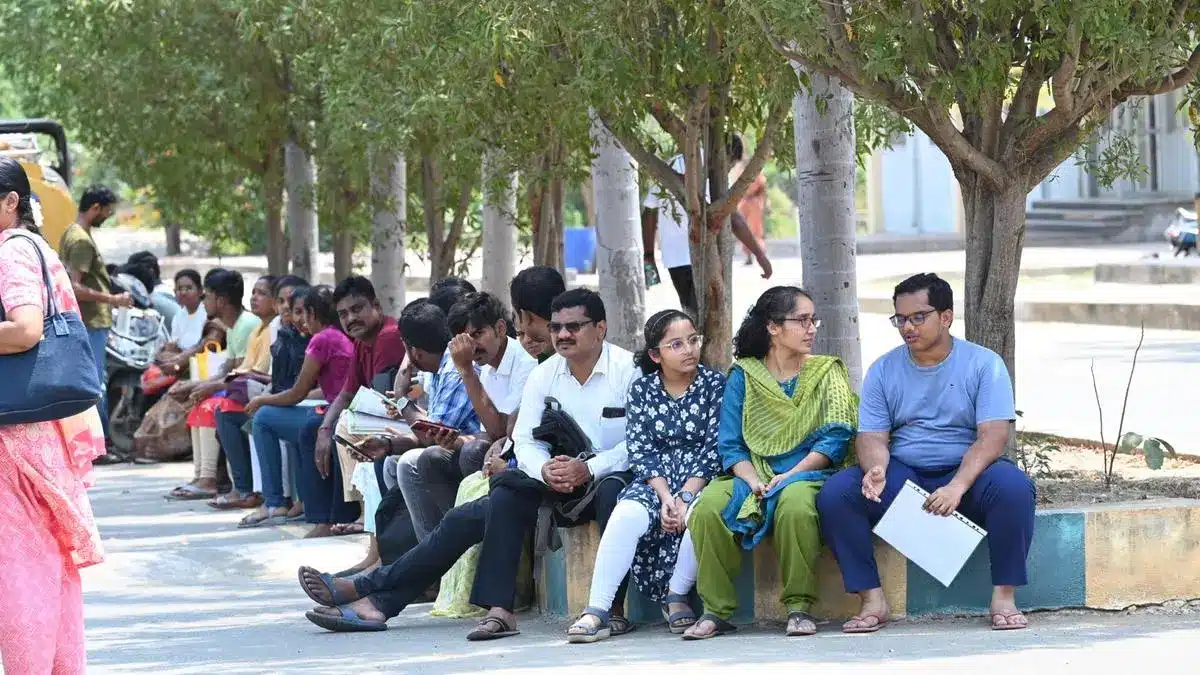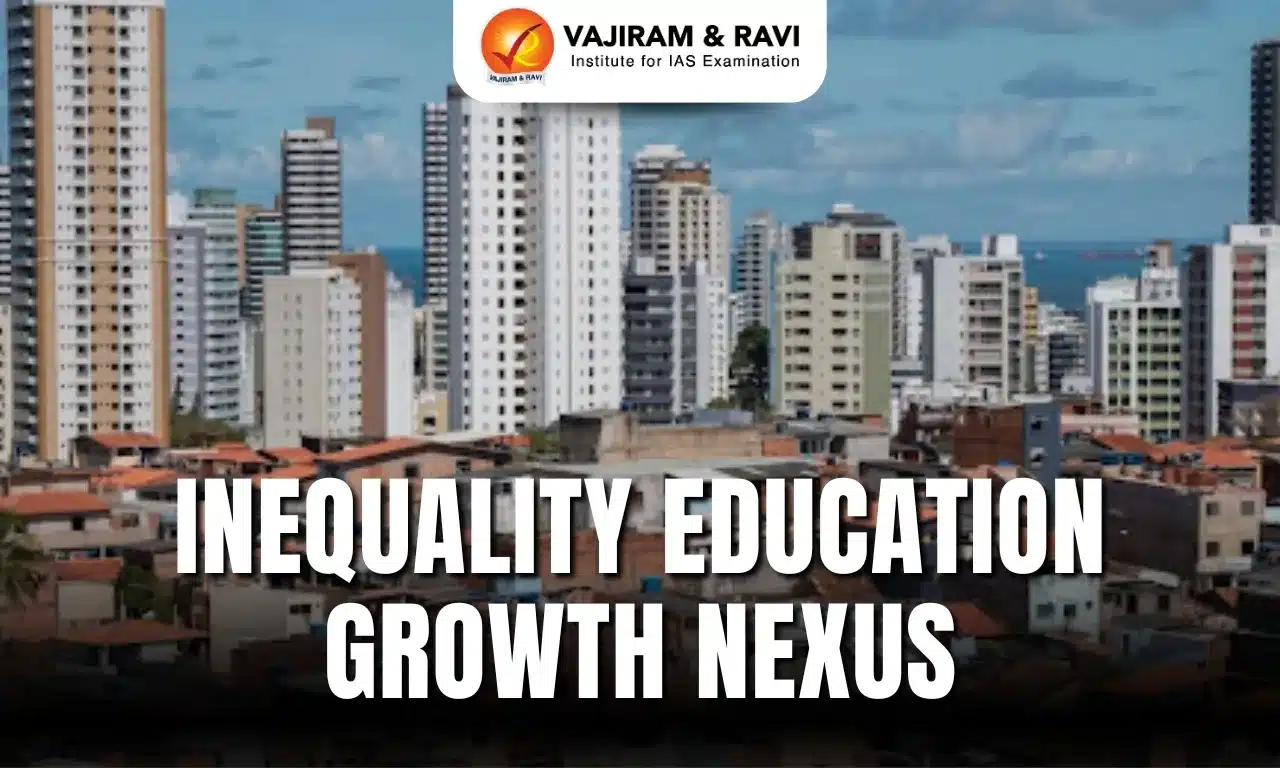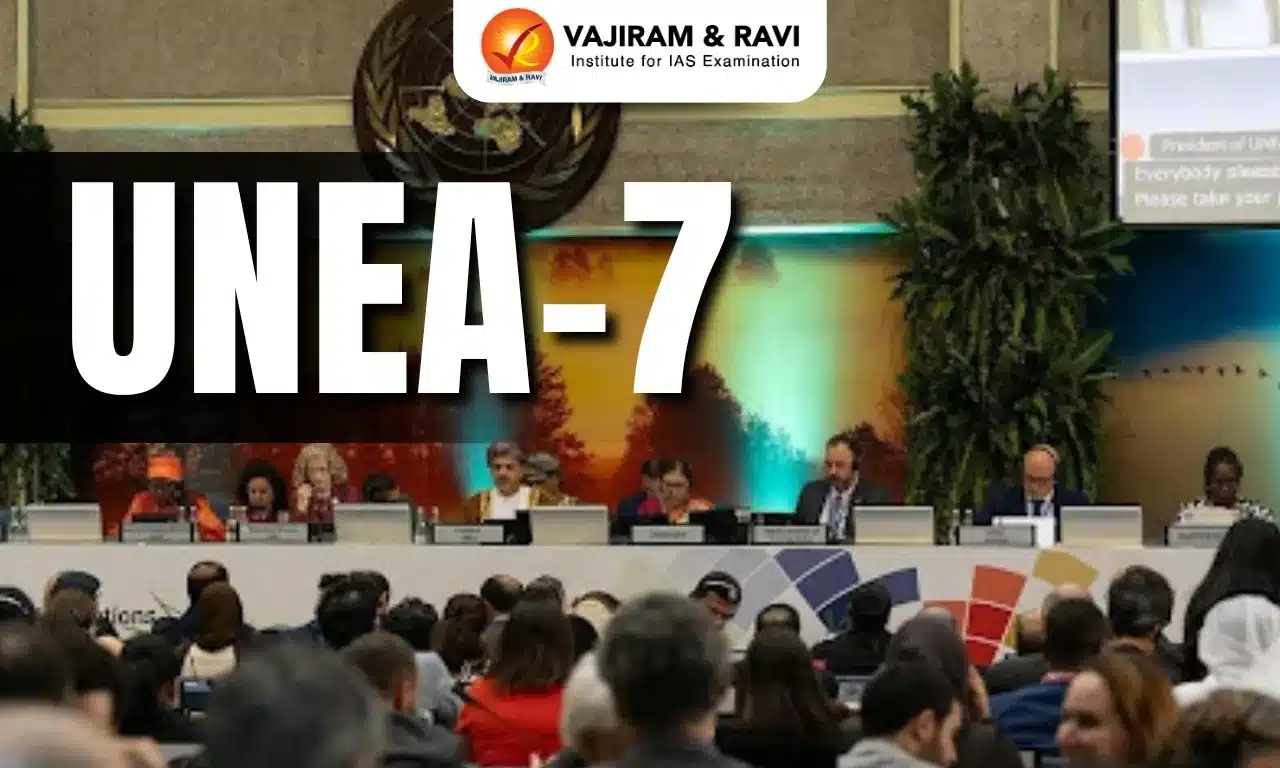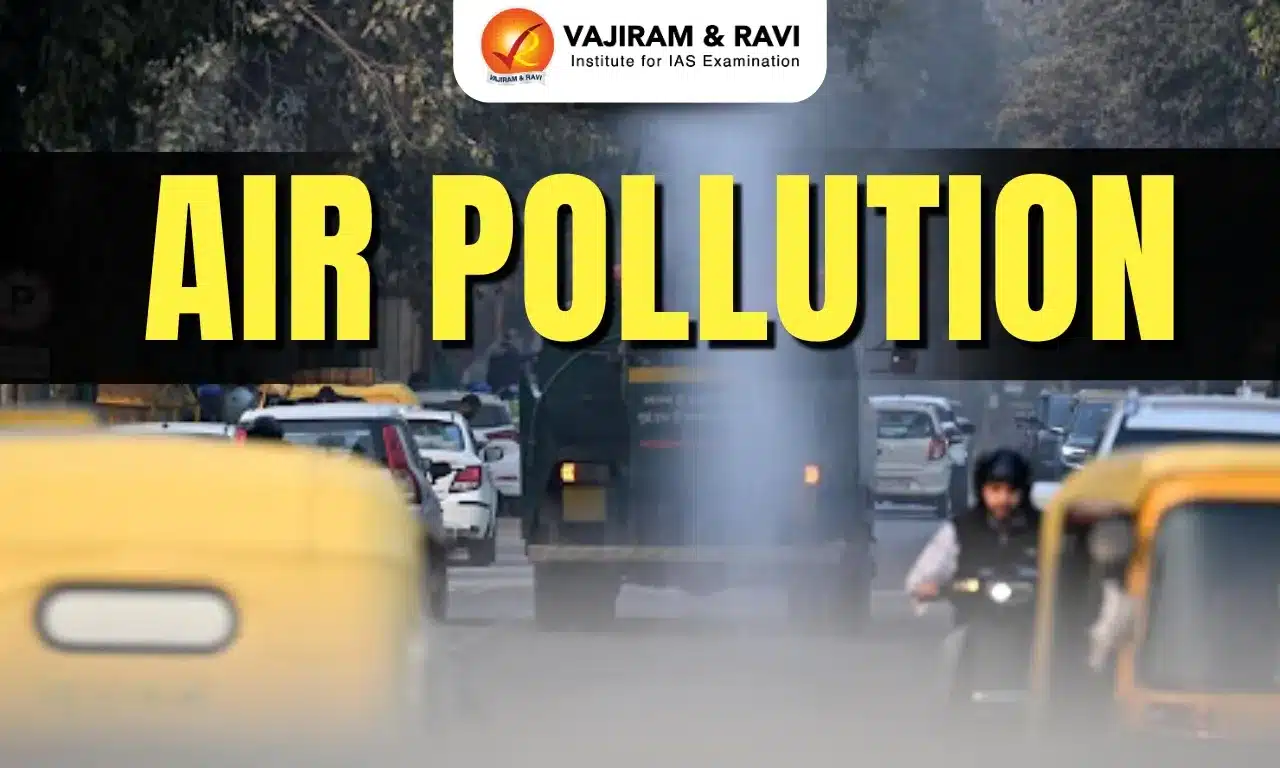What’s in today’s article?
- Background
- Union Government’s Stand
- About National Eligibility cum Entrance Test (NEET)
- About National Testing Agency (NTA)
- About the NEET-UG Results Controversy
- NTA’s Response
- Conclusion
Background
- On June 13th, the Supreme Court was reviewing petitions challenging the award of grace marks to 1,563 candidates from six NEET centres who experienced technical issues and weren’t given the full 3.2 hours to complete the exam.
- These grace marks were awarded based on a court order and a recommendation from a committee formed by the National Testing Agency (NTA).
- Petitioners argued that the grant of grace marks was arbitrary and lacked transparency.
Union Government’s Stand
- The Union government informed the Supreme Court that the scorecards of 1,563 candidates who received grace marks in the NEET-UG 2024 exam on May 5 will be cancelled.
- These candidates will have the opportunity to retake the exam on June 23, with results expected by June 30 and counselling starting on July 6.
- The affected candidates will be notified of their actual scores without the grace marks and can choose to either take the re-test or accept their revised scores as final.
About National Eligibility cum Entrance Test (NEET)
- The NEET (National Eligibility cum Entrance Test) is an entrance examination for students who wish to pursue undergraduate medical courses (MBBS/BDS) and postgraduate courses (MD/MS) in government or private medical colleges.
- Objective: To standardize the admission process for medical and dental courses across India, ensuring a uniform evaluation of candidates’ eligibility.
- The National Testing Agency (NTA) conducts NEET on behalf of the Ministry of Education.
About National Testing Agency (NTA)
- The NTA is an autonomous organization in India responsible for conducting entrance examinations for higher educational institutions.
- The NTA was established in November 2017 by the Ministry of Education to standardize and streamline the conduct of entrance exams across the country.
- Objective: To improve the quality and transparency of entrance examinations, ensuring fairness and efficiency in the assessment process.
Functions:
- Conducting Exams: The NTA conducts various national-level entrance examinations for admission to undergraduate and postgraduate programs.
- Developing Question Papers: The NTA is responsible for developing high-quality question papers.
- Result Processing: The NTA processes examination results efficiently, ensuring timely release of scores and ranks.
- Headquarters: New Delhi
Overall, the National Testing Agency plays a crucial role in India’s education system by providing a reliable, transparent, and efficient framework for conducting entrance examinations.
About the NEET-UG Results Controversy
- On June 4, the National Testing Agency (NTA) released the results for the National Eligibility-cum-Entrance Test, Undergraduate (NEET UG) 2024 examination.
- Approximately 2.4 million candidates participated in the NEET UG test held on May 5 across 571 cities, including 14 centers outside India.
- The exam sought to fill the 1,08,940 available MBBS seats distributed among more than 700 medical institutions nationwide.
Allegations:
- Post evaluation, there have been complaints about the unusually high number of students (67) who hit the perfect score of 720/720.
- Also, there are complaints about students who scored “statistically impossible” marks, while some cases of cheating by proxy were also reported.
- Other cases pertaining to the question paper leak are still to be heard by the Supreme Court.
- These charges led to nationwide protests from students and political parties.
- Both groups are demanding a fair investigation and a fresh NEET exam, citing concerns about a question paper leak that may have given some students an unfair advantage.
- Experts and students argue that the integrity of NEET, designed to regulate medical admissions and ensure quality, was compromised by these reported violations.
NTA’s Response
- NTA officials attributed the unusually high number of full scores to an “easy paper“.
- However, it has formed a four-member committee to investigate the allegations.
- The committee found that awarding compensatory marks to 1,563 students created a “skewed situation.”
- They noted that grace marks should have been limited to attempted questions and recommended canceling the test for these students.
Conclusion
- Students and education experts are dissatisfied with canceling the NEET exam for only 1,500 students, arguing that this acknowledges an error and the entire May 5 exam should be re-conducted for all candidates.
- They claim this partial cancellation indicates a failure of the system and has led to a loss of faith, as expressed on social media.
- Critics argue that instead of ensuring fair competition, the current conduct of NEET has created additional layers of privilege.
- Given the exam’s large scale, with over 23 lakh students across 4,500 centers in multiple languages, minor issues are expected.
- However, after nearly a decade, it’s reasonable to expect that the exam’s initial problems should be resolved.
- They believe that preventing fraud and ensuring fair administration should be possible for government agencies.
Background
- Two Union ministries, Electronics and Information Technology, and Commerce and Industry, are advocating for relaxed visa regulations for Chinese technicians.
- This is due to the rising concerns from the domestic industry about unfulfilled export orders due to visa delays for Chinese technicians.
- The problem was highlighted in several forums, including the Board of Trade (BOT) meeting in January.
- The BOT advises the Commerce and Industry Ministry, with annual meetings attended by central and state government officials, major trade and industry bodies, Export Promotion Councils, and industry associations.
- The Department for Promotion of Industry and Internal Trade and the Ministry of Electronics and Information Technology (MeitY) have reportedly communicated their requests to the Ministry of External Affairs (MEA).
- Although the domestic industry has imported and installed Chinese machinery, it cannot operationalize the plants due to visa issues.
- This issue arose after the Galwan clash in 2020.
- Since then, efforts to send Indian professionals to China have been ineffective, as Chinese authorities quickly approve visas for importers but delay those for Indian manufacturers and government officials.
Domestic Industry’s Dependency on Chinese Machinery
- The productivity of Chinese professionals is of high quality. They can help produce 150 items with the same resources that currently produce 100.
- The Chinese technicians usually stay in India only for a year, share the expertise and then return and this is in the interest of our manufacturing.
- The domestic industry relies on Chinese professionals because of its significant dependence on China for crucial components in most electrical and electronic segments.
- Official data indicates that out of the nearly $100 billion worth of imports from China, around 60% comprised engineering and electronic items, which are essential for fulfilling India’s export orders.
- However, due the strained geopolitical relationship with China, India has implemented strict quality norms to reduce Chinese imports of mass consumption items and intermediate products.
- Simultaneously, India is promoting domestic manufacturing through the Production Linked Incentive Scheme (PLI) in strategic areas.
How Visa Norms Are Different for Chinese Nationals?
- India allows foreign nationals to enter for business activities under ‘Employment’ and ‘Business’ visa categories.
- Employment visas are granted for one year at a time to skilled professionals, while business visas are valid for five years for those setting up ventures in India.
- However, for Chinese nationals, only single-entry tourist and business visas valid for up to three months are issued, with other visa types requiring prior clearance.
- Additionally, employment visas are not granted for jobs that qualified Indians can perform.
- Industry sources noted that while the government permits limited entry of Chinese professionals under Production Linked Incentive (PLI) schemes, many manufacturers are forced to relocate operations to countries like Bangladesh, where there are no such restrictions.
FDI Restrictions on China
- Following the Galwan clash in 2020, the Indian government implemented measures to reduce Chinese influence on its economy.
- A significant change was made to the Foreign Direct Investment (FDI) policy through Press Note 3 (PN3), which mandated that investments from countries sharing land borders with India be approved through the government route.
- Official data shows that, since the PN3 modification in April 2020, India had approved only about a quarter of the 435 FDI applications from China by June of the previous year.
- Despite this, China’s contribution to India’s total FDI equity inflows is minimal.
- From April 2000 to December 2021, China ranked 20th, with a mere 0.43% share, amounting to $2.45 billion, of the total FDI equity inflow into India.
Domestic Industry’s Request to the Union Government
- Industry representatives have indicated that visa approval delays are negatively impacting the manufacturing sector, including the leather industry, which is increasingly shifting to sports footwear.
- Industry members have requested MeitY and the Commerce Ministry to allow Chinese professionals only for specific companies importing their products.
- The industry acknowledges the government’s concerns. Hence, it wants short-term visas for the Chinese technicians to help the commissioning of the plant and is willing to take safeguards as per regulations.
Q1. What is the role of the UGC?
Determining and maintaining standards of teaching, examination and research in universities. Framing regulations on minimum standards of education. Monitoring developments in the field of collegiate and university education; disbursing grants to the universities and colleges.
Q2. What is the objective of the All India Council for Technical Education (AICTE)?
To plan, formulate and maintain the norms and standards by acting as a statutory authority. To provide quality assurance through accreditation. To monitor, evaluate and provide funding for the priority areas. Maintaining parity of certification & awards.
Last updated on December, 2025
→ Check out the latest UPSC Syllabus 2026 here.
→ Join Vajiram & Ravi’s Interview Guidance Programme for expert help to crack your final UPSC stage.
→ UPSC Mains Result 2025 is now out.
→ UPSC Notification 2026 is scheduled to be released on January 14, 2026.
→ UPSC Calendar 2026 is released on 15th May, 2025.
→ The UPSC Vacancy 2025 were released 1129, out of which 979 were for UPSC CSE and remaining 150 are for UPSC IFoS.
→ UPSC Prelims 2026 will be conducted on 24th May, 2026 & UPSC Mains 2026 will be conducted on 21st August 2026.
→ The UPSC Selection Process is of 3 stages-Prelims, Mains and Interview.
→ UPSC Result 2024 is released with latest UPSC Marksheet 2024. Check Now!
→ UPSC Prelims Result 2025 is out now for the CSE held on 25 May 2025.
→ UPSC Toppers List 2024 is released now. Shakti Dubey is UPSC AIR 1 2024 Topper.
→ UPSC Prelims Question Paper 2025 and Unofficial Prelims Answer Key 2025 are available now.
→ UPSC Mains Question Paper 2025 is out for Essay, GS 1, 2, 3 & GS 4.
→ UPSC Mains Indian Language Question Paper 2025 is now out.
→ UPSC Mains Optional Question Paper 2025 is now out.
→ Also check Best IAS Coaching in Delhi

















